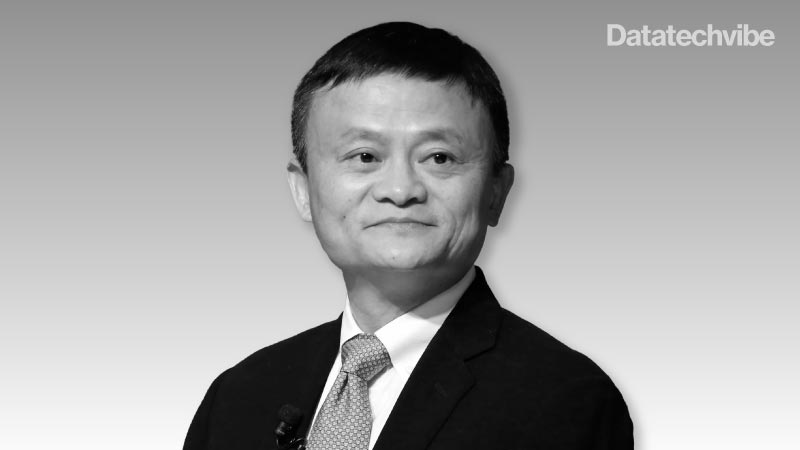To offset ongoing tech crackdown challenges, Alibaba is renewing its push with its stellar business model
At the moment, Alibaba Group Holding is braving an ominously grey sky. Its shot at becoming the Amazon of China has taken a temporary beating with its core eCommerce operation under siege from Beijing’s regulators and its cloud computing operation, AliCloud, mired in troubles.
While some attribute Alibaba’s current predicament to Jack Ma’s, the company’s co-founder, defiant attacks on the Chinese financial regulator, others describe it as an example of the Chinese government reasserting control over the economy.
Whatever it is, despite its precarious position, one can’t ignore that its market valuation soared to more than $850 billion in 2020.
In March 2021, although the company reported a $1.2 billion operating loss as a result of the $2.8 billion fine levied by the Chinese regulator, Alibaba, calling the fine a “one-time impact,” said that its income for the quarter would have been $1.6 billion — a 48 per cent increase year over year — had it not been for the penalty. In 2021, Alibaba recorded a 41 per cent growth in revenue to $109 billion.
A sign of confidence about the company’s continued growth, the Chinese tech giant, is upbeat, predicting $144 billion in profits for 2022. And it sure can happen. Owning stakes in many different industries and businesses, Alibaba is a force to be reckoned with, serving about 1 billion consumers in China and over 300 million worldwide. The company claims its Alipay mobile payment service has over 1.3 billion users around the globe.
Started in Ma’s flat in the coastal city of Hangzhou in 1999, with less than 20 people, it’s a tech giant giving Amazon a run for its money. When Alibaba was listed publicly in New York in 2014, it was the world’s largest IPO at $25 billion.
Although Ma now has fallen out of favour with the Beijing government, he remains a global business celebrity. A former English teacher whose love for the digital economy propelled him to build one of the world’s biggest online commerce companies. Ma stepped down as Alibaba’s chairman in 2020 and is ostensibly dedicating himself to philanthropy.

Putting innovation in application
Alibaba is best known for its innovation, from machine learning and deep learning to neural networks, making product launches easier. It harnesses vast amounts of data, enabling it to offer personalisation and an extreme level of customer service.
And with AliCloud, it is quick to scale and manages staggering amounts of data and transactions that are otherwise impossible. Last October, Alibaba launched a new chip designed for servers as it looks to boost the competitiveness of its cloud computing business.
AliCloud is the Chinese firm’s second-largest source of revenue after its eCommerce business. During an earnings call in February, Chief Executive Officer Daniel Zhang said AliCloud could eventually become the “main business” and that China’s cloud market would grow into a “trillion RMB opportunity” by 2025.
One of the leading cloud platforms in Asia, AliCloud incorporates everything from database, storage, big data analytics, security, and machine learning to IoT services and a visual interface for ease of use, so companies can drag and drop various components into a canvas to assemble their AI functionality. Also included in the platform are scores of algorithm components that can handle a number of chores, enabling customers to use pre-built solutions.
After 11 years, AliCloud became profitable for the first time last December. Integrating cloud into Alibaba’s enterprise chat app DingTalk, AliCloud aims to drive industries across the board onto cloud services – akin to a relationship between Microsoft 365 and Azure.
AliCloud is ramping up efforts, introducing a Dropbox-like service, tapping into the emerging demand from individual users. Its enterprise communication application, DingTalk, has also transformed into a cloud platform where businesses can build their software. In February, Olympic Winter Games Beijing 2022 migrated its core games technology services to AliCloud. The company also introduced Cloud ME, a cloud-powered realistic projection that facilitates remote social interactions. It also revamped its hybrid cloud strategy to accelerate enterprise cloud adoption and created a partner program with Equinix and HPE, among many others, to bring solutions to global customers.
Alibaba’s Xunxi Digital Factory, powered by its cloud computing infrastructure and IoT, offers SMEs a digitalised end-to-end manufacturing supply chain that allows for fully-customised, demand-driven production.
Last year, to cultivate a million-strong digital talent pool and empower 100,000 developers and the growth of 100,000 technology startups in the Asia Pacific over the next three years, AliCloud launched Project AsiaForward with an initial $1 billion funding. The company is also building data and innovation centres in the Philippines, Malaysia, and Indonesia.
“Our strategic roadmap for APAC includes targeted investments to facilitate the digital transformation of local businesses. Equally important is our focus on nurturing a digitally-competent workforce, which we see as a key challenge for many businesses to overcome going forward,” said Selina Yuan, General Manager of International Business Unit, Alibaba Cloud Intelligence.
Alibaba’s largest revenue driver
But eCommerce remains Alibaba’s largest revenue driver, accounting for nearly 70 per cent of revenue. It does its work through three websites – Taobao, Tmal, and Alibaba.com. Taobao is a large shopping site, and Tmall specialises in selling branded goods, focused on the growing middle-class. And Alibaba.com connects Chinese exporters with companies elsewhere in the world.
At last year’s Global Shopping Festival, AliCloud’s proprietary large-scale AI model M6 made its debut, which improved AI-intensive operations such as AI-powered apparel design. By shortening the time required to design new clothes from multiple months to less than two weeks, M6 drives efficiency improvements in the production chain.
To make shopping accessible for everyone, a smart voice assistant called Taoxiaobao – the speech recognition technology developed by Alibaba DAMO Academy – was deployed on the Taobao app to make it easier for China’s growing elderly population to adapt to digital life and support voice search.
Alibaba’s last-mile autonomous logistics vehicle Xiaomanlv are some of the tools developed by DAMO. Xiaomanlv can deliver as many as 500 packages a day, carrying 50 packages at a time. At the same time, DingTalk, which can process 600,000 messages per second, enables instant and smooth communication for users on more than 30 apps across Alibaba’s ecosystem.
Although the eCommerce landscape has been getting tougher for Alibaba as the company was slapped with an anti-monopoly fine, last August, the tech giant pledged to plough “excess profits” back into parts of its eCommerce business in the form of merchant support. “We’ll focus on a shift from new-user acquisition to user retention and growth,” Zhang told investors.
To offset the challenge, Alibaba has started a renewed push to get more customers in overseas markets. Over the last few years, Liège in Belgium has been a launchpad for the Chinese eCommerce group’s push into the European marketplace and challenge Amazon by providing a whole new array of services not offered by the US tech giant. Two years ago, accelerating a new retail strategy to capture opportunities in China’s retail sector, integrating online and offline resources, Alibaba invested $3.6 billion in Sun Art Retail Group Limited, a leading hypermarket and supermarket operator in China.
Meanwhile, looking for ways to get in on the metaverse theme, the eCommerce behemoth led a $60 million investment round into augmented reality glasses maker Nreal. Its investment in Nreal hints toward collaboration between the two, given the startup’s work with its other investors. For example, Nreal and Nio announced AR glasses tailored for electric vehicles last year.
Over two decades, Alibaba went from a cross-border commerce startup to a $460 billion empire that touches on eCommerce, financial services, cloud computing, and AI. Its troubles with Beijing aren’t over yet and may have temporarily derailed some of Alibaba’s ambitious plans, but it won’t take long for the Chinese tech giant to get past regulatory headwinds and the market’s negative sentiment to recover from the recent plunge. With its stellar business model, retracement is almost etched in stone.
If you liked reading this, you might like our other stories
Why is Funding In Women-Led Startups Still Very Limited
CloudOps Is The Next Big Thing. Are You Ready?









